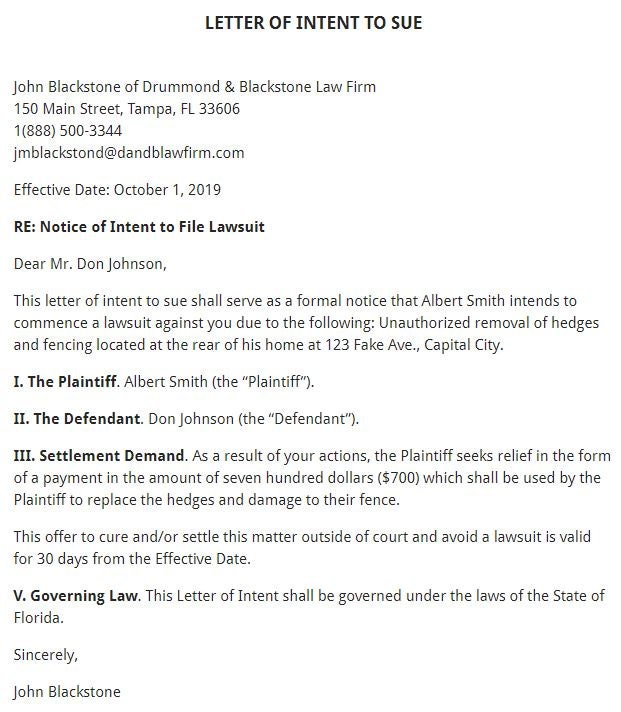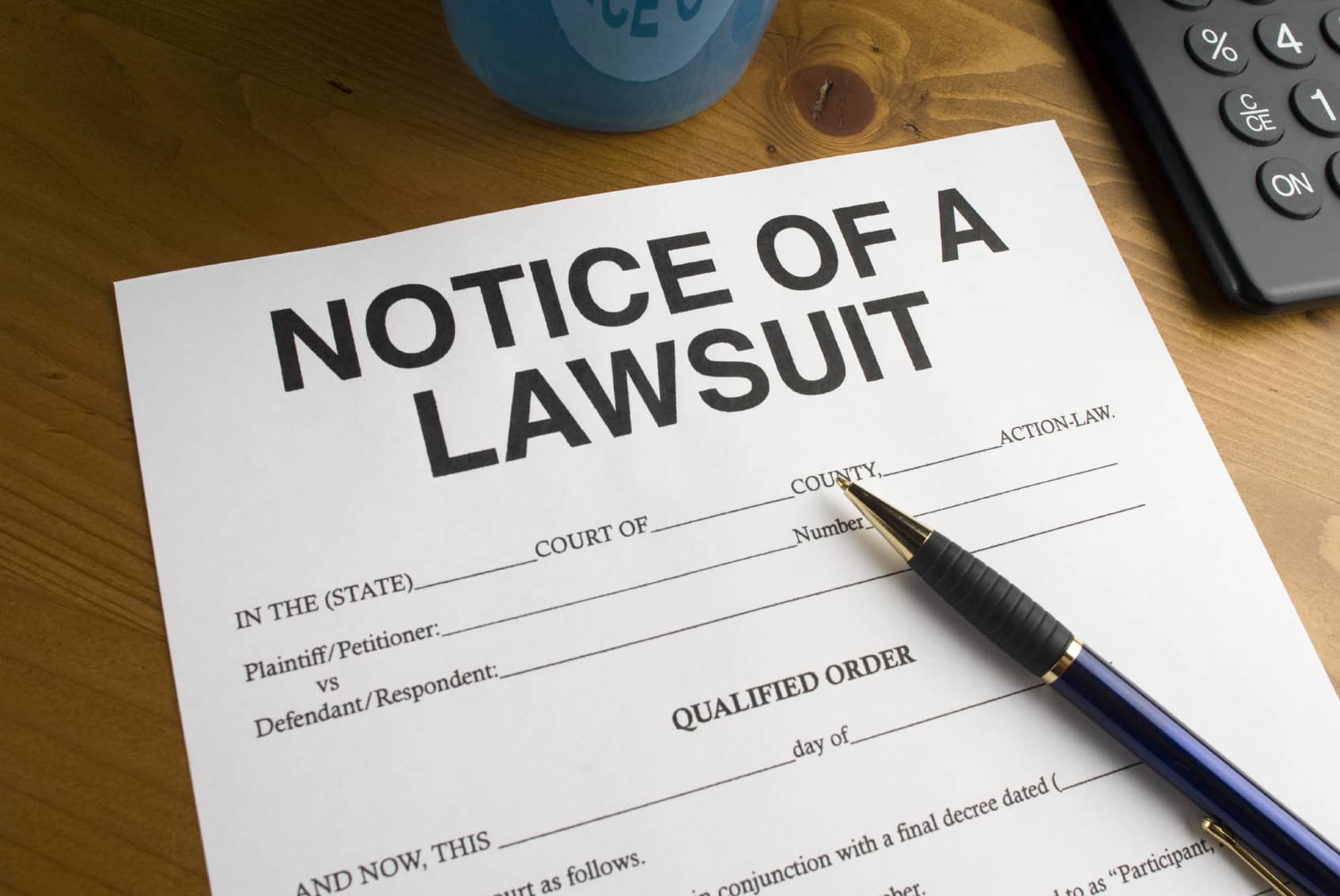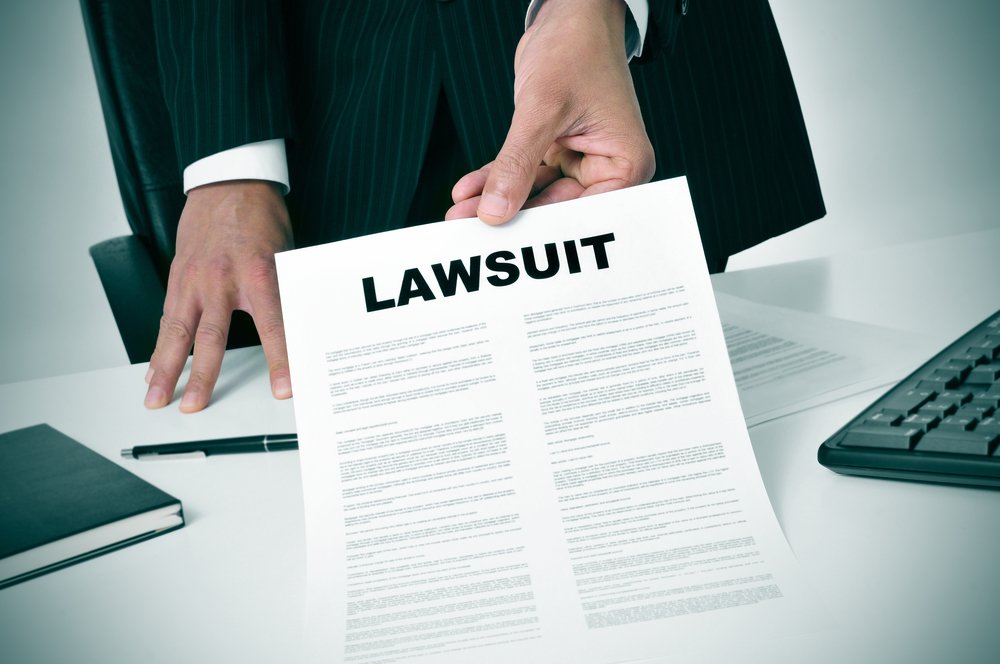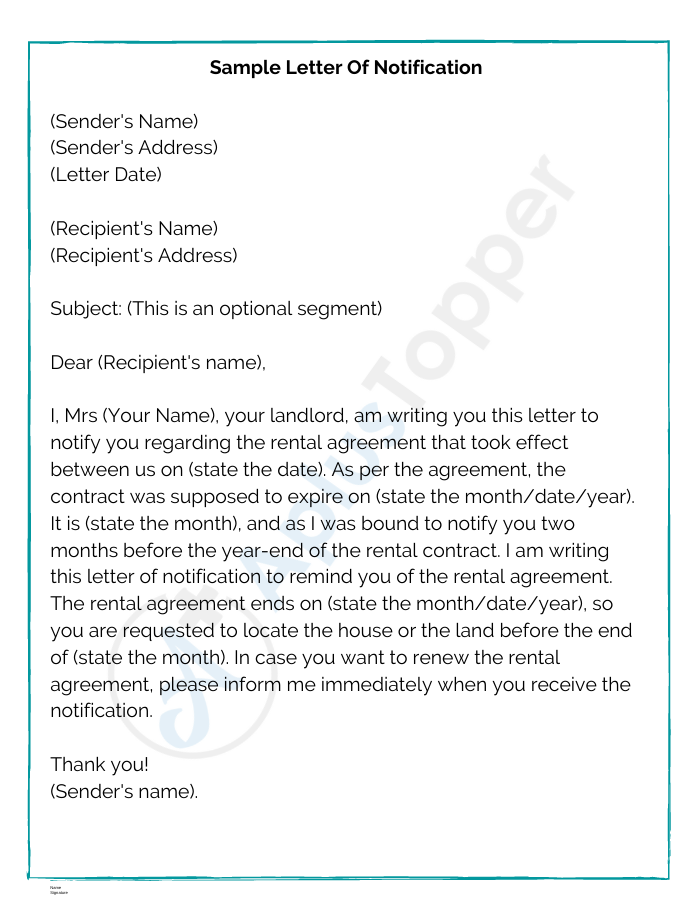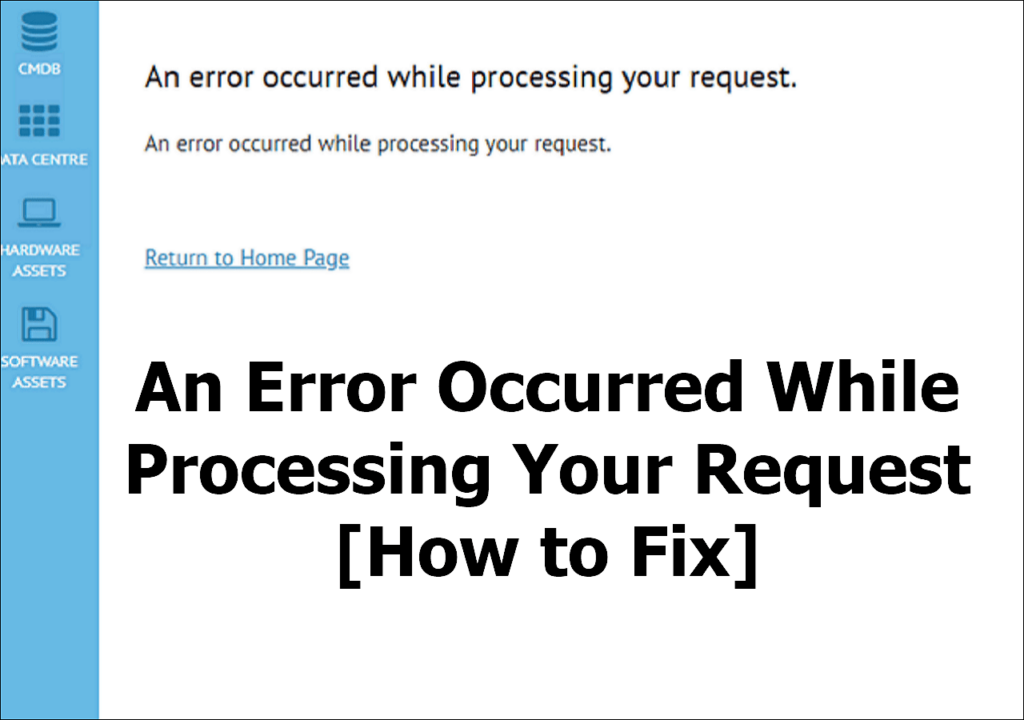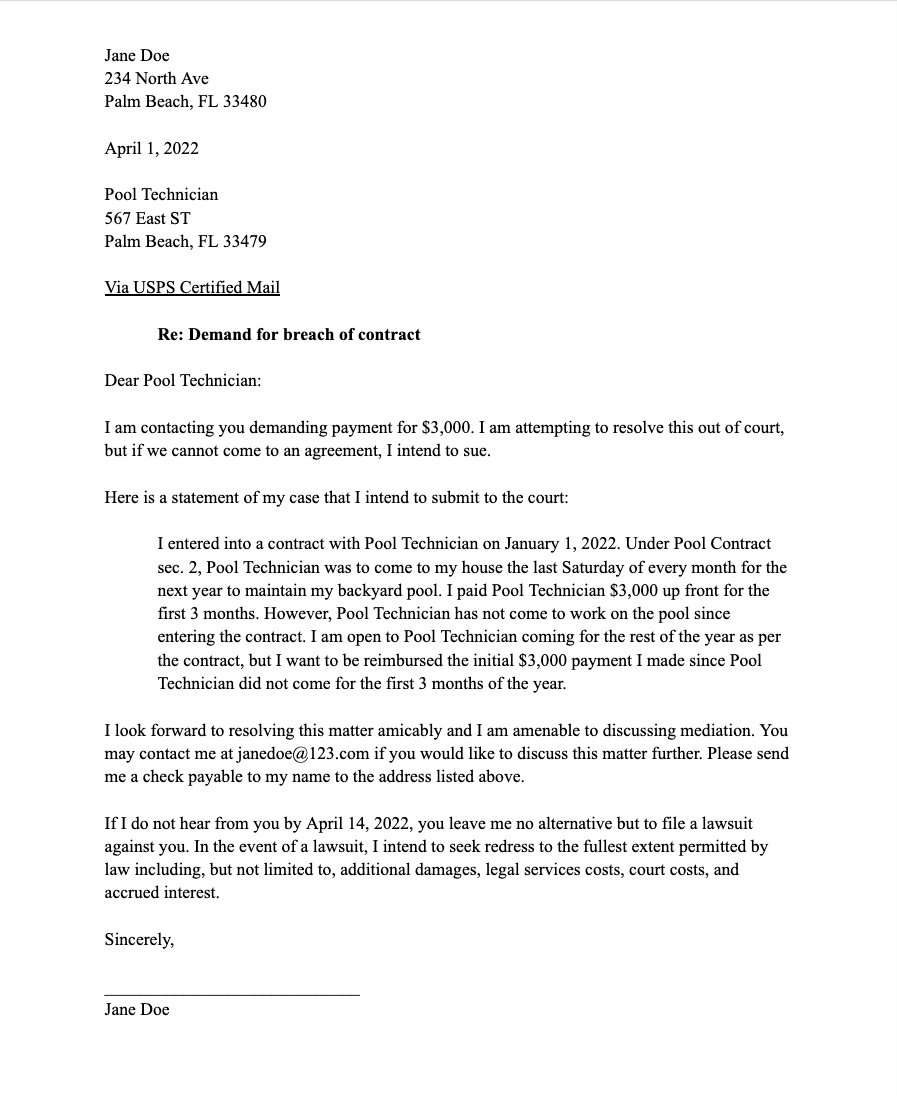Can You Be Notified Of A Lawsuit By Phone

The phone rings, shattering the afternoon calm. A voice on the other end, clipped and official, announces you're being sued. Panic flares, disbelief washes over you. Is this real? Or just another sophisticated scam trying to rattle your cage and empty your wallet?
The question of whether a phone call constitutes proper notification of a lawsuit is surprisingly complex. While a phone call might serve as an informal heads-up, it almost never fulfills the legal requirements for official service of process. This article explores the nuances of legal notification, separating fact from fiction and helping you understand your rights and obligations if you find yourself on the receiving end of such a call.
The Core of Due Process: Understanding Service of Process
The foundation of any legal proceeding is due process, a constitutional guarantee that ensures fairness and protects individuals from arbitrary actions by the government or other parties. A key component of due process is proper notification, formally known as service of process. This process ensures that a defendant is officially informed of the lawsuit against them, allowing them the opportunity to respond and defend themselves.
Service of process is more than just a casual heads-up. It's a meticulously defined procedure outlined by law, varying slightly by jurisdiction (state and federal laws). The purpose is to establish undeniable proof that the defendant received notice of the lawsuit.
Acceptable Methods of Service: What's Legitimate?
Legitimate methods of service typically involve a physical delivery of the lawsuit documents, also known as the summons and complaint. This is usually done by a professional process server, a sheriff's deputy, or, in some cases, another adult authorized by the court.
Here's a breakdown of common, acceptable methods:
- Personal Service: This is the most common and reliable method. A process server physically hands the documents to the defendant directly.
- Substituted Service: If personal service is unsuccessful after multiple attempts, substituted service may be allowed. This involves leaving the documents with a responsible adult at the defendant's residence or place of business. Rules vary, but it generally requires follow-up mailing to the same address.
- Service by Publication: In rare circumstances, when the defendant's whereabouts are unknown, a court may allow service by publishing a notice in a newspaper or online. This is typically a last resort and requires court approval.
Email notification is sometimes permitted, but usually only if the defendant has previously agreed to receive legal documents electronically. Laws are still evolving, and specific requirements vary by jurisdiction.
Why a Phone Call Doesn't Cut It: The Problem with Verbal Notification
While a phone call *might* precede formal service, it's never a legally sufficient substitute. The reasons are multifaceted.
Firstly, there's no verifiable proof that the person answering the phone is indeed the intended defendant. Anyone could answer, and it's impossible to confirm their identity definitively. Consider this scenario: Imagine someone calls claiming to be a process server but can't provide proper identification, physical document or verifiable information.
Secondly, a phone call leaves no tangible record of what was said or what documents, if any, were referenced. Memories fade, details get distorted, and it becomes a "he said, she said" situation, which is useless in court. The legal system requires tangible evidence.
Finally, a phone call offers no protection against fraud or scams. Con artists frequently use intimidating phone calls to pressure victims into paying bogus debts or divulging personal information. A legitimate process server will always follow up with physical documents.
What To Do If You Receive Such a Call: Remain Calm and Verify
Receiving a call claiming you're being sued can be unsettling, but it's essential to remain calm. Don't give the caller any personal information beyond confirming your name. A legitimate caller will already have most of your basic details.
Never give out your Social Security number, bank account details, or credit card information. Scammers often use this tactic to steal your identity or drain your accounts. Always be wary of unsolicited requests for personal or financial data, particularly via phone.
Instead of engaging extensively with the caller, ask for the following information:
- The name of the court where the lawsuit was filed.
- The case number.
- The name of the plaintiff (the person or entity suing you).
- The name of the law firm or agency representing the plaintiff.
Once you have this information, independently verify it. Contact the court clerk directly to confirm the lawsuit exists and that the case number is valid. A quick call can save you from a scam.
You can also contact the law firm or agency supposedly representing the plaintiff. Look up their contact information online and verify it matches what the caller provided. Be cautious of clicking links sent via text or email, as these can be phishing attempts.
Consequences of Improper Service: A Case for Dismissal
If you were notified of a lawsuit only by phone and no proper service of process followed, you might have grounds to challenge the lawsuit. Improper service can be a basis for a motion to dismiss the case.
A motion to dismiss argues that the court lacks jurisdiction over you because you were not properly notified of the lawsuit. Winning such a motion can result in the case being dismissed. Consult with an attorney immediately if you believe you have not been properly served.
However, it's crucial to act quickly. There are deadlines for filing motions and responding to lawsuits. Ignoring the situation, even if you believe service was improper, can lead to a default judgment against you. Do not delay seeking legal advice.
Protecting Yourself: Resources and Further Information
Navigating the legal system can be daunting, but resources are available to help. Contact your local bar association for referrals to qualified attorneys. They can provide guidance on your rights and options.
Numerous legal aid organizations offer free or low-cost legal services to individuals who qualify. Look for organizations in your area that specialize in consumer protection or civil litigation. Remember to be your own advocate.
The Federal Trade Commission (FTC) and your state's Attorney General's office are excellent resources for information on scams and consumer protection. Report any suspicious phone calls or potential scams to these agencies.
Conclusion: Knowledge is Your Best Defense
While the jarring ring of a phone call claiming a lawsuit might induce panic, remember that knowledge is power. A phone call alone is almost never legally sufficient notification. Protect yourself by understanding the requirements of proper service, verifying any claims independently, and seeking legal advice if necessary.
The legal system is designed to be fair and transparent. By understanding your rights and taking proactive steps, you can navigate the complexities of legal notification and ensure you're treated fairly, even amidst the unsettling prospect of a lawsuit. Stay informed, stay vigilant, and remember that you have the right to due process.


